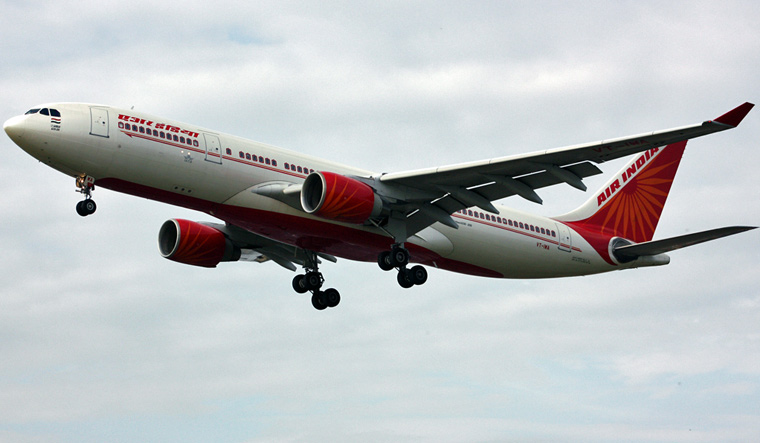Burdened with high fuel cost and rising debts, aviation is one sector which is not soaring high on expectations from the Union budget. Instead, it is rather hopeful that the government takes initiatives to make its operating environment more cost-effective, in keeping with the times.
The airlines' balance sheets were hit with the impact of rising cost of aviation fuel (ATF) over last year and in the current year. Impact of currency fluctuations, rising cost of airport operations and lower yields, have all added to airlines' woes.
“In India, ATF prices are way above the rest of the world. We estimate it to be at least 45 per cent higher than the world average price,” said Sachin Gupta, senior director, CRISIL Ratings.
The rating agency in a recent report had cautioned that the Indian aviation industry, after making profits of Rs 4,000 crore in the 2017-18 fiscal, could encounter losses of Rs 9,200 crore this year, way above the rating firm's estimate of losses near Rs 7,873 crore in last year. “The blow was harder with the rupee depreciating 13 per cent against the dollar after March 2018,” he explains.
The rising fuel and currency cost have drained the purse of most airlines, leaving their costly acquisitions to a screeching halt, says aviation industry consultancy, CAPA India, in a recent report.
“There has been a significant impact of falling rupee when fuel prices were climbing. This was a hit at unprecedented levels for airlines. But now both the currency and fuel prices are more or less stabilising,” Kapil Kaul, CEO, CAPA India, told THE WEEK, summing the impact of last year's trade wars on aviation fuel prices.
While airlines can claim an input tax credit (ITC) on GST paid for most items or services consumed by them, ATF alone is not in its ambit. Instead, both central excise and state VAT is levied on ATF, making the fuel costlier than anywhere else in the world. Lately, the GST Council took up the matter of ATF prices and allowed tax credits on ATF for economy tickets alone.
An exemption of state levies on ATF and uniforming the tax on it has been so far opposed by most states, including those where the BJP or its allies, are in power. States like Uttar Pradesh, Madhya Pradesh, Andhra Pradesh, and Gujarat had earlier opposed a Modi government proposal seeking inclusion of ATF in the GST ambit.
Therefore, the budget cannot do much for stemming ATF prices. It could, however, reverse a 5 per cent customs duty levied in September, on the import of cheaper ATF by airlines, aviation industry experts opined.
According to aviation ministry sources, the government is likely to be considering a proposal on a new re-capitalisation plan for debt-stressed national carrier Air India. Already on a lifeline after 2012, at the face of a hostile environment in the aviation sector, Air India is likely to clock debts of Rs 57,000 crore by the end of the fiscal.
“A complete re-haul of Air India was what we had aimed to do. Now there is a new distinguished board at Air India, and this is the logical next step everyone had agreed to,” said an aviation ministry official, who is aware of the developments.
The debt-stressed Air India had failed to secure any bidders the first and only time the government put it for bidding. Post that disappointment, Civil Aviation Minister Suresh Prabhu had said that the government wants to revitalise the airline and bring it in shape, before considering to put it under the hammer again.
However, hopes are still afloat for the domestic aviation sector, as after not-so-bad third-quarter results, airlines are witnessing increased traffic in the lean winter-time schedule duration between November and January. “This is going to be better for the fourth quarter results of airlines,” said Kaul of CAPA-India.
A relaxation in the budget for customs duties on new planes and on aviation parts is another expectation of the airlines. “This has impacted costs to a large extent. We are going slow on bringing new planes now,” said a spokesperson of a domestic private airline, who have placed orders for new aircrafts for expansion.
Traditionally, most airlines say that they are reluctant to depend on the budget. Not just this year, but always. “The budget is a non-event though we make our suggestions to the ministry,” said Ujjwal Dey, a representative of the Federation of Indian Airlines (FIA), which represent major private airlines.



